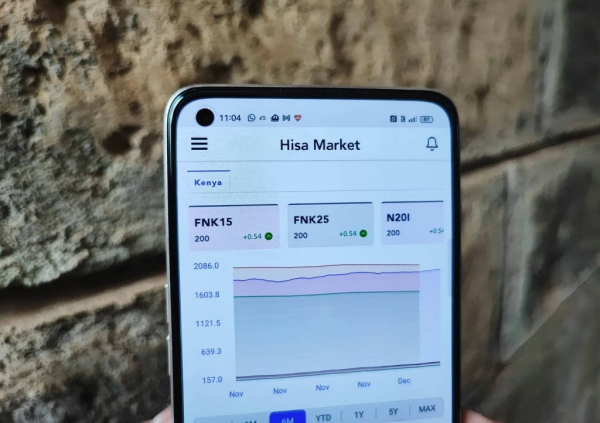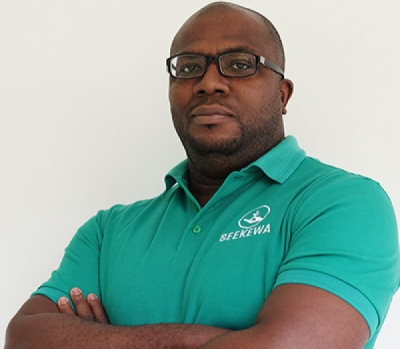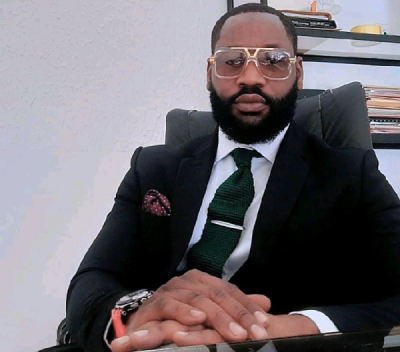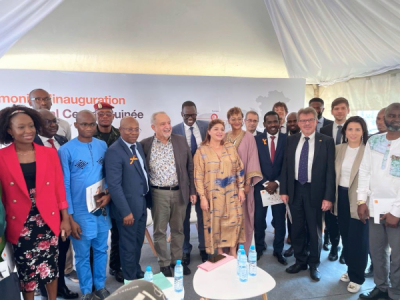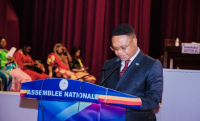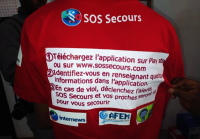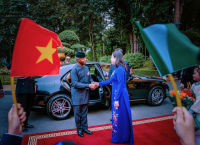E-governance is one of the priorities of the Algerian government. The choice aims to promote economic growth and improve employment and living standards.
Last Wednesday, Algeria launched its e-governance platform featuring over 300 digitized public services offered by various ministries. The platform allows citizens access to the services and detailed information on administrative procedures.
According to Prime Minister Aïmene Benabderrahmane, the platform plays a “vital role in promoting unified access to digital services, which spares citizens the burden of wasting their time searching for digital public services and checking official sites and sectoral portals.”
Since 2020, Algeria has made notable progress, establishing a solid foundation for its effective digital transformation. According to the UN E-Government Survey 2022, Algeria ranks 112th out of the 193 countries surveyed in the report. It also has a high e-governance index and is among Africa’s top 16 in that index.
The unified e-government platform is part of the national strategy for an efficient digital transformation. For Minister Aïmene Benabderrahmane, it is an important milestone in the implementation of the country’s program to achieve digital transformation, promote the widespread use of ICT tools and improve economic governance.
Samira Njoya
The solution is unveiled after more than ten months of testing. It allows millions of Kenyans access to various stock markets and information to up their investment skills.
Hisa is a fintech solution developed by a Kenyan eponymous start-up. It enables users (individuals and businesses alike) to buy fractional Kenyan and US stocks and pay via mobile money.
“At Hisa, we are building the infrastructure for borderless investments in Africa through micro-investments. Less than one percent of the population in Sub-Saharan Africa invests in the capital markets, caused mainly by a lack of access, low financial literacy levels, lack of IPOs as well as low liquidity of the local stock exchanges. [...] Through Hisa, anyone in Kenya can invest in their favorite companies such as Safaricom, KCB, Equity, Tesla, Apple, Microsoft, and many more,” explains Erick Asuma, Hisa’s co-founder, and CEO.
The solution was launched after ten months of beta testing. It has a mobile app -for both Android and iOS devices, through which users can create their accounts to access its numerous features. Among other things, they can access over 400 podcasts about the stock market, technologies, and asset management.
According to Eric Jackson, another Hisa co-founder, the startup is planning a funding round to expand its operations. The co-founder says the fintech already has more than 15,000 users with more than US$1 million in transactions processed. On Playstore, the Hisa Android app has already been downloaded more than 10,000 times. Its rating is 2.8 out of 5.
Adoni Conrad Quenum
The serial entrepreneur runs several businesses in the USA and Côte d’Ivoire. With Seekewa, his latest venture, he wants to build a new food system in Africa.
Fred Zamblé (photo) is an Ivorian entrepreneur. He is also the co-founder and CEO of Seekewa, a startup he launched in 2016 with his brother Serge. With Seekewa, he wants to improve the food supply while at the same time ensuring smallholder farmers have better incomes. Indeed, on its online platform, Seekewa brings together organizations and individuals (known as supporters), and farmers with small projects. The “supporters” can support projects presented by farmers by purchasing redeemable e-vouchers that give them discounts on food products.
“We propose a socio-economic model based on the direct relationship between consumers and farmers. The commitment on the platform is free of charge for the contributors and the farmers. Seekewa addresses both the living conditions of farmers in rural areas and the improvement of the purchasing power of the lower and middle classes through a circular economy,” Fred told Disrupt Africa in 2019.
Apart from Seekewa, the former MEST Africa Challenge participant also co-founded, in 2014, Digicraft LLC, a Delaware-based company he heads as the CEO. From 2015 to date, he is a photo evangelist for Fotowalk City in Côte d’Ivoire. In 2005, he co-founded the digital agency Neuropixels Inc., where he is serving as the CEO. A year earlier, he entered the professional world as a UX developer and designer at Atemis Business Cloud, a US software development company. From 2016 to 2014, he was an Adobe West Africa user group manager.
Melchior Koba
Since its launch in 2016, Mpoto, the startup behind Coneckto Food, has developed several interesting solutions in the Burkinabe market. The latest allows users to order food.
Conekto Food is a mobile app developed by the Burkinabe start-up Mpoto. It allows its users to order food in Burkina Faso. It also gives users the possibility to get the food delivered when needed.
The app is available for iOS and Android devices. To access its services, users need to create an account. Then, they can access the menus offered by listed restaurants and place orders. When ordering, they can ask restaurants not to add so or so ingredients to their foods. They can also choose whether the foods need to be delivered or they will pick them up. For payment options, they can pay either with cash or by mobile money.
In 2021, Mpoto announced that Conekto Food was already downloaded more than 2,500 times. On Playstore, which is the official app store for Android devices, the app has been downloaded some 100 times.
Currently, the solution covers only Ouagadougou, Burkina Faso’s capital. It lists over twenty restaurants with hopes to conquer other towns and restaurants in the near future.
Adoni Conrad Quenum
After his mechatronics and robotics studies in the UK, he went back to Mali, his home country, to vulgarize the then-little-known mechatronics industry. The company he built for that purpose has been growing by the day since then.
Abdoulaye Diakité (photo) is a Malian mechatronics, robotics, and automation engineer who graduated from Kingston University in the UK in 2014. He is also the founder and CEO of Diakité Robotics Ltd, a robotics company founded in 2014.
Through that company, he offers robotics, mechatronics, electromechanical, smart security, and physical security solutions engineering services. He also develops solutions for home automation, metrology and rapid prototyping, and bust sculpting.
"Diakité Robotics is a mechatronics company created in 2014 to vulgarize mechatronics -which is the synergistic and systemic combination of mechanics, electronics, automation, and real-time computing- in Mali, but also in the entire sub-region," said Abdoulaye Diakité in an interview with maliweb.net in 2020.
During the Covid-19 pandemic, his company developed Sania Blon, an individual disinfection tunnel that emits a bactericidal and virucidal decontamination product. The solution helps disinfect passers-by without harming their health, their clothes, and their personal belongings. It was intended for use by the most-frequented companies and institutions like banks, hospitals, industries, and government institutions.
The CEO also plans to create the prototype of a submarine that can support the marine brigades operating across the Niger River. He is also designing an autonomous electric scooter and 3D-printed bionic hand and shin prostheses.
Before launching Diakité Robotics Ltd, from 2008 to late 2012, he worked for Malian firm Voice Communication SA, as a technical support engineer. In March 2022, he won the Best Young Entrepreneur Brand Award at the first Mali Brand Week. In 2014, he wrote the engineering paper “CAN Bus Based Systems Teaching Using Electronic Rapid Prototyping,” which was presented at the World Conference on Technological and Engineering Education (WCTEE) in Greece.
Melchior Koba
In Africa, there is still a shortage of qualified workforce for the continent’s digital ambitions. Hence the importance of actions like training and youth support which Orange is offering across the continent.
Last Wednesday, telecom operator Orange officially inaugurated its Digital Center in Conakry, Guinea. The tech infrastructure is the result of a collaboration between the operator and the German development cooperation agency GIZ. It will allow young graduates and non-graduates to be trained in digital technology, to be incubated, free of charge, and to become self-employed. They can also take part in accelerator programs.
According to Ousmane Boly Traoré, general manager of Orange Guinea, this new digital center will allow young people to be not only competitive in the job market but also to find the resources necessary to train in new technologies, embark on entrepreneurship and create jobs.
The center spans over 600 square meters. It hosts four of Orange group’s strategic programs, namely a Coding School, the digital manufacturing workshop FabLab Solidaire, the accelerator Orange Fab, and the investment fund Orange Ventures Middle East and Africa.
The programs are free for everyone. Young people will receive training (90% hands-on training) while project leaders will receive support, including acceleration and investment.
Over the past few years, Guinea has taken action to develop its population’s digital skills. Last September, the Minister of Technical Education and Vocational Training, Alpha Bacar Barry, unveiled the government's plan to transform the national telecom academy into a National Digital School. Orange’s initiative enriches such actions and offers the youth more opportunities to get digital training and get the skills needed to let the country benefit from the digital economy.
Orange Digital Guinea is the thirteen similar infrastructures launched by Orange in the Middle East and Africa. It is in line with Orange's approach to digital inclusion. According to Frank Lütje, chargé d'affaires of the Embassy of the Federal Republic of Germany in the Republic of Guinea, it aims to strengthen access to the labor market as well as entrepreneurship to help the youth fully contribute to a better future for their generation and Guinea as a whole.
Samira Njoya
Like most African countries nowadays, DRC is particularly focused on developing its digital economy. Since the creation of its Ministry of Digital Affairs, the ministry has taken several actions to make digital technologies tools for integration, good governance, economic growth, and social progress.
Last Tuesday, the DRC parliament pre-approved the digital law presented by Digital Minister Désiré-Cashmir Eberande Kolongele (photo). According to the official, "the adoption of this legal framework aims to regulate the new digital economy, secure investment in the sector and oversee this large sector by seeking a balance between, on the one hand, the freedom principles- including economic freedom and freedom of speech, information and opinion and the right of assembly- and, on the other hand, privacy protection and the protection of public order.”
On August 26, 2022, during a ministerial council, President Felix Tshisekedi instructed the elaboration of a legal framework that would govern the country’s digital transformation. On October 14, the government approved the framework after reviews and comments from some specialized international organizations.
The digital law focuses on cybersecurity, the establishment of a law governing digital activities and services, and the establishment of bodies, and specific public institutions to support and control the digital ecosystem. Those bodies are namely the Digital Regulatory Authority, the National Authority for Electronic Certification, the Data Protection Authority, and the National Agency for Cybersecurity. The digital code also focuses on the establishment of rules organizing the security and protection of digital information systems.
It should be noted that the new law, which is now under thorough review, will complement the law of November 25, 2020, on telecommunications and information technology and communication. Indeed, that law had shown weaknesses because it does not take into account the protection of personal data, cybersecurity, and cybercrime.
Samira Njoya
The solution aims to help law enforcement agencies help as many people as possible in some of DRC’s regions where residents are faced with numerous security challenges.
SOS Secours is a digital solution developed by Congolese start-up Yangu. It helps users notify the startup and get help when their lives are endangered. It has an Android app that can send alerts or even report incidents.
With the app, users can send geolocalized alerts by just shaking their phones. They can also “use the call and messaging options to notify the relatives they selected when activating the app,” Yangu explains.
When it receives an alert, Yangu -thanks to a team of experts- analyzes the threat and sends support or emergency help as needed. The startup also analyses the various threats to pinpoint the locations where users can face such threats at a given period.
Adoni Conrad Quenum
She got her agritech business idea during an academic internship. With some of her classmates, she developed a system to reduce the post-harvest losses incurred by smallholder farmers in her country. Thanks to her system, she has earned several awards and recognitions.
Sara Benlafqih (photo) is a Moroccan industrial management engineer. She is also the CEO and one of the co-founders of agritech startup BMTA&C which develops innovative solutions to challenges like access to energy and food insecurity.
Through BMTA&C, she created a storage unit to help farmers extend the shelf life of their crops from 2 to 20 days. The unit uses a solar cooling system to help smallholder farmers in remote areas reduce crop losses in Morocco and the sub-region.
The said unit was inspired by a discovery Sara made during an academic internship. Indeed, she found out that farmers used to lose almost one-third of their harvest yearly just because they had no storage facility. The storage unit she created can now store up to six tons of fruit and vegetables without using coolants, which are harmful to the environment.
“By giving access to clean, reliable, and affordable energy, our technology promotes food security, fights climate change, and improves farmers’ livelihoods,” Sara told Forbes in early 2022.
Before launching BMTA&C, the CEO who holds an MSc in industrial management engineering interned at various companies and organizations. In June 2017, she was a blue-collar intern at OCP SA, a mineral exploration firm. The following month, she spent a two-week summer internship at Cardiff Metropolitan University. In April 2018, she took on a 1-month shadowing internship at the mining firm Group Managem.
From June to August 2018, she was an engineering intern at the Portuguese group Águas de Portugal (AdP). Her last internship was in 2019 with an end-of-studies internship at the Mohammed VI Polytechnic University, where she got her MSc in industrial management engineering.
In 2017, she was a speaker at the Dean’s Forum held at MINES ParisTech. The following year, she was also a speaker at the Economy Days, in Lyon, Paris, where the discussions revolve around the growth of the digital sector in Africa.
Nominated for the Aviram Awards - Tech for Humanity launched by the Aviram Family Foundation and Forbes to celebrate the most impactful startups in the Middle East and North Africa in 2022, Sara Benlafqih's startup participated in the four-month accelerator program, MassChallenge Switzerland 2022. In 2021, it was in third place in the EDF Pulse Africa 2021 innovation competition and was the Grand Prize winner of the Global Food Challenge.
Melchior Koba
Nigeria's ambition is to digitize its whole public sector and boost internet access across the country. For that purpose, it is building relationships with countries that share the same goals.
Nigeria's Vice President Yemi Osinbajo (photo, left) recently started a working visit to the Socialist Republic of Vietnam. On Monday, December 5, 2022, he was welcomed by his Vietnamese counterpart, Madam Võ Thị Ánh Xuân (photo, right), at the Presidential Palace in Hanoi.
During that welcome meeting, the two parties signed a defense cooperation agreement and expressed their commitment to strengthening their long-standing bilateral relations by working together in the areas of the digital economy, and telecommunications, among others.
According to Prof. Osinbajo, “there are vast opportunities that exist for cooperation and collaboration, especially in the area of digital economy and telecoms.”
“We look forward to accelerating the process, ensuring that those agreements are signed because they are vital to the collaborations that we will see between our countries in the coming years,” he added.
Both countries have great potential in the digital economy and telecommunications in their respective continents. In its report "E-Government Survey 2022 The Future of Digital Government", the United Nations Department of Economic and Social Affairs (UN DESA) said that Vietnam ranks 86th out of 193 countries with a high e-government index. Nigeria ranks 140th in the world with an average e-government index.
The bilateral collaboration they plan to strengthen will therefore enable Nigeria to benefit from Vietnam's extensive experience in digitizing services, deploying telecommunication services, and profit Nigerians, who will benefit from public e-services.
“We have close 120 million of our citizens who have put to use telecoms equipment or devices. And also, broadband connectivity is vastly improved. We hope that by 2025, we will have broadband connectivity for all of our over 200 million people,” Prof. Osinbajo said.
Samira Njoya
More...
The Dubai-based company can now offer its services in Ghana since it is now complying with the local law, which requires service providers to have a presence in the country.
Tech-enabled payment solutions provider Network International Holdings will open a new office and data center in Ghana. This was announced in a release, dated December 5, issued by the holdings.
“Ghana is an exciting market for digital payments and innovation, and we are delighted to launch our office and data center to offer customers, banks, and entrepreneurs smooth and secure payment services. We look forward to supporting businesses as they grow and reach new customers,” said Addo-Quaye (photo, left), Managing Director of Network International Ghana.
With that office, the holding is establishing a local presence to provide innovative solutions that drive customer and profitability and help businesses and economies thrive by simplifying commerce and payments in the Ghanaian market.
Network International's launch in Ghana comes against a backdrop of accelerated digital transformation and increased consumer preferences for convenient, frictionless payment options. In June, Ernest Addison, the governor of the Bank of Ghana, noted that the volume of instant payment transactions has grown from 420,000 cedis (about US$52,800) in 2016 to 31.4 billion cedis in 2021. In addition, cash in circulation in the country as a proportion of gross domestic product (GDP) has dropped from 6.8 percent in 2016 to 4.7 percent in 2021, while the number of checks used per capita has dropped from 25.67 in 2016 to 18.9 in 2021.
Network International wants to take advantage of these shifts and create more partnerships with companies in the digital payments space in Ghana to offer customers more payment options and boost financial inclusion.
The company has a presence in Africa’s largest markets, including Nigeria, South Africa, Kenya, Egypt, and Ghana. It also operates in almost all of the other African countries.
Samira Njoya
The solution was launched to provide reliable and quicker courier and delivery services.
ChapChap is a digital solution developed by Togolese start-up GLC Services. It allows users to get packages delivered through its web platform or mobile application.
According to Alao Lawal, one of GLC Services’s co-founders, ChapChap is an outstanding platform launched to meet the demand of organizations that need quick and reliable courier services.
From the solution’s online platform or its mobile app -available for Android and iOS devices-, users can create their accounts and start placing delivery orders. Once they place orders, they can track them via the embedded geolocation feature.
ChapChap also gives users the possibility to plan when the parcels or any type of package should be delivered to the recipient. It also allows e-tailers to integrate its API into their platforms.
According to PlaySgtroer data, the Android version of ChapChap has been downloaded more than a thousand times.
Adoni Conrad Quenum
With formal training in information technology and banking and finance, she helps entrepreneurs fulfill their ambition. Apart from being a business advisor, she also runs a startup incubator.
Zeinebou Abdeljelil (photo) is a Mauritanian tech entrepreneur and a financial management consultant. She holds two master's degrees, one in banking and financial support services from IFID in Tunisia and the other in business and IT from ISG in Tunisia. She also completed a six-week program on entrepreneurship at the University of Notre Dame’s Mendoza College of Business in the United States.
With a firm belief that innovation and digital technologies have the potential to drive sustainable and inclusive growth in Africa, she co-founded – in 2014- Hadina RIMTIC, the first incubator focused on ICTs in Mauritania. Through her incubator, she organizes pitch competitions (MauriApp Challenge or the entrepreneurship marathon) and, to date she has supported more than 100 projects in the field of digital, livestock feed production, natural compost, and solar energy equipment.
“ There is a need to build the capacity of entrepreneurs in Mauritania, whether it is in the ideation of their projects, in the financial and day-to-day management of their start-ups, or in building their resilience to shocks,” she said earlier this year.
In 2015, she also co-founded IKLAAA Consulting, an agency aimed at building entrepreneurs’ capacities with strategic counseling and management advice. Apart from her entrepreneurship career, the Mandela Washington Fellowship Alumni has over a decade-long professional and consulting experience. Her professional career started, in 2010, with BAMIS Bank where she was a corporate relations manager.
In 2016, UNDP hired her as a capacity-building consultant for small and medium producers in Mauritania. After three months of working for the UNDP, she joined the anti-inequality non-profit organization, Oxfam Intermón, as a microfinance consultant in her country. In 2017, she officiated as a youth entrepreneurship development consultant for the World Bank Group and a Peace consultant for the United Nations Population Fund (UNFPA). The following year, she worked for Caritas Mauritania as a youth entrepreneurship development consultant.
Melchior Koba
Henceforth, with this technology, Algerian companies will have to encode their information in barcodes stamped on the products manufactured locally.
Barcoding products has become a compulsory requirement in Algeria. The Minister of Trade and Export Promotion, Kamel Rezig (photo), announced this requirement last Saturday at the Bar code information day held at the National Agency for the Promotion of Foreign Trade in Algiers. According to Minister Kamel Rezig, the reform aims to facilitate exports and avoid falsifications.
The reform follows the interministerial order on technical regulations governing the stamping of barcodes on products intended for human consumption issued on February 16, 2021, by the Algerian Ministries of Trade and Industry.
In August 2020, the Minister of Trade announced the upcoming elaboration of a regulatory text governing barcoding in the country. At the time, he said that in the following five years, all the Algerian products manufactured and packaged locally for human consumption would be barcoded once it becomes mandatory.
To date, 11,410 companies operating on the national market have requested and obtained their barcodes, which they have stamped on more than 500,000 products destined for human consumption. The remaining companies are called to get up to date because “once the deadline passes, the products without barcodes will be considered illegal and banned,” Kamel Rezig says.
Samira Njoya



